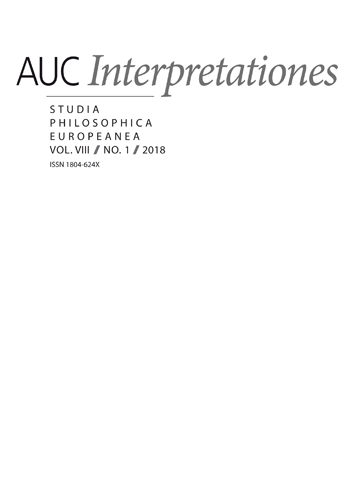Le cœur transcendantal de la sociabilité : corps et jugement à l’origine de la théorie de la reconnaissance de Fichte
The transcendental heart of sociability: Body and judgment at the origin of Fichte's recognition theory
Author(s): Diogo FerrerSubject(s): German Idealism
Published by: Univerzita Karlova v Praze, Nakladatelství Karolinum
Keywords: J. G. Fichte; judgement; body
Summary/Abstract: Considering J. G. Fichte’s texts from his period in Jena, I discuss the insertion of the second person in the transcendental structure of judgement and its relations to the embodiment of the self. Recognition of the other and embodiment are not a result of experience, but a priori elements without which experience is not possible. For this purpose, I address the following points: (1) freedom and objective experience are interdependent concepts; (2) the theory of the ‘thetic’ judgement, exposed in the Grundlage of 1794/95, is the demonstration of the previous point; (3) in order to reflect and to be self-conscious, the I must posit a passive element for itself and in itself; (4) the passivity required by the reflective determination of the I, named ‘determinability’, is the I’s body; (5) the I is thus always a body, where its will expresses itself immediately; (6) the determinability has also the form of a plural ‘spiritual’ world of recognition; (7) Fichte’s theory of self-consciousness connects systematically the theories of judgement, human freedom, objective experience, embodiment and intersubjectivity. As a conclusion, I argue that Fichte’s theory of intersubjective recognition has not only a normative, but also a metaphysical or ontological scope.
Journal: Acta Universitatis Carolinae Interpretationes
- Issue Year: 8/2018
- Issue No: 1
- Page Range: 12-26
- Page Count: 15
- Language: French

